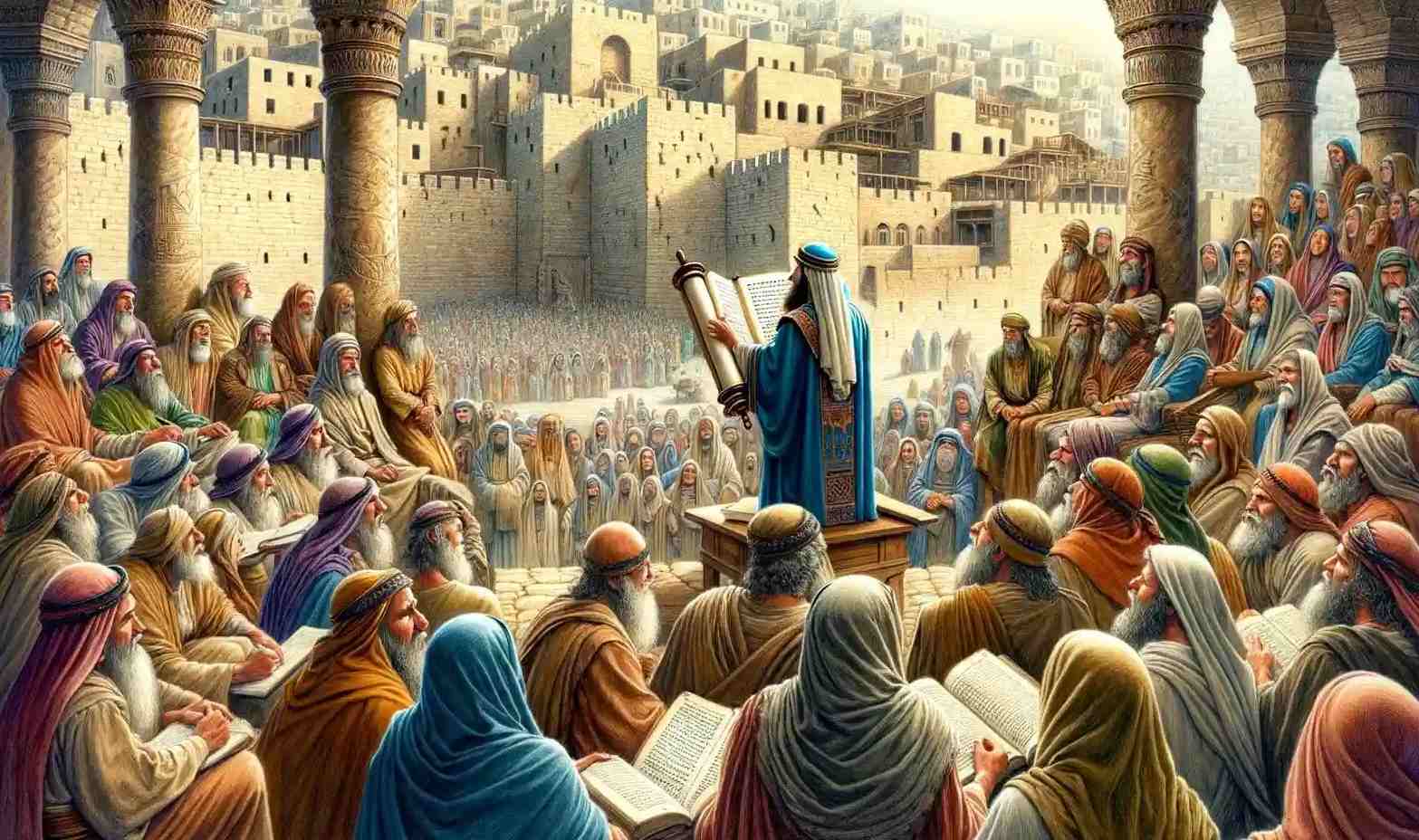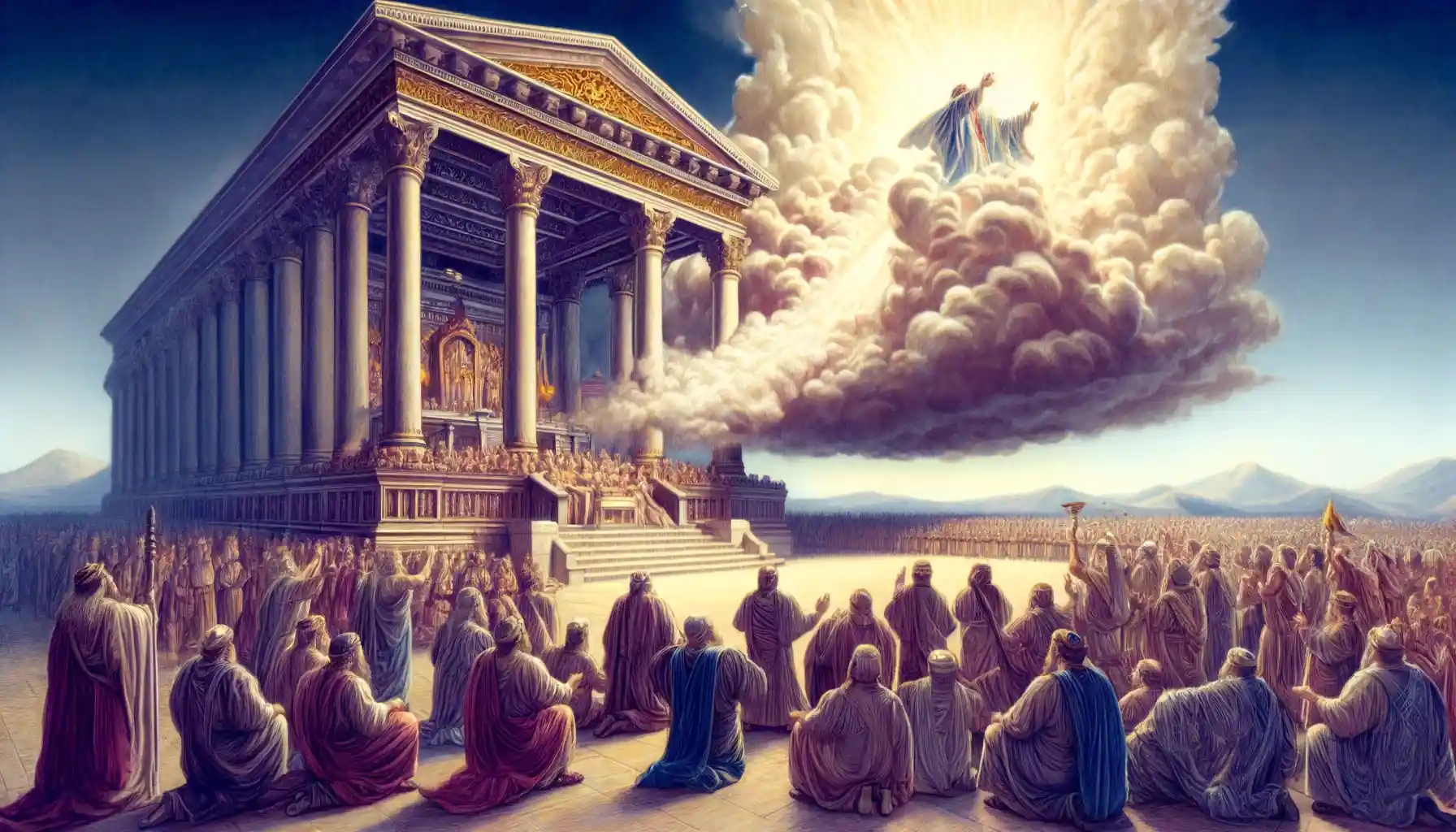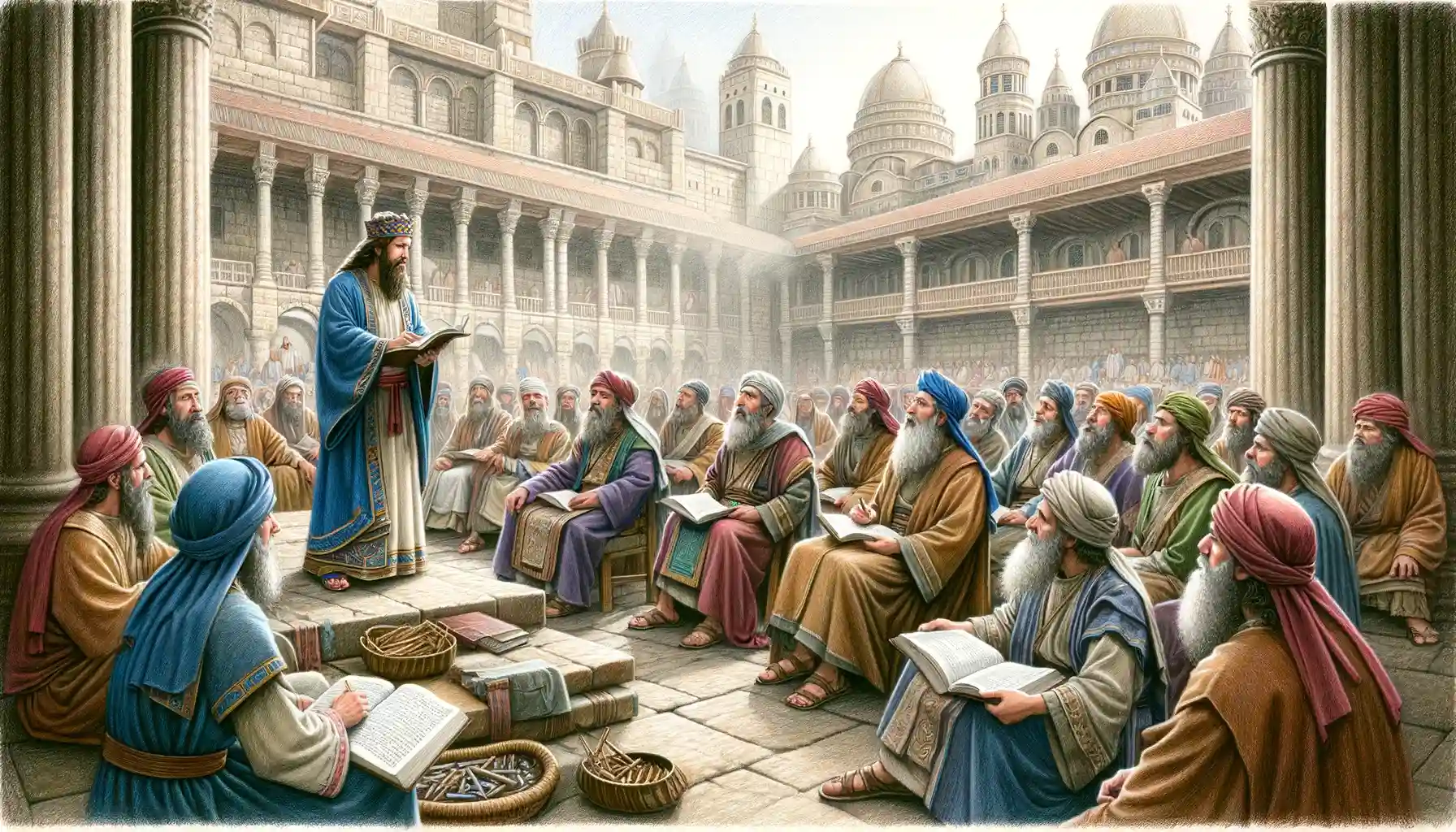The book of Nehemiah provides a narrative of physical and spiritual rebuilding that resonates with themes of resilience, communal responsibility, and the power of faith-driven leadership.
Ezra provides a narrative of hope and divine faithfulness, emphasizing that renewal is possible through adherence to religious foundations and responsive leadership.
2 Chronicles thus acts as a mirror reflecting the spiritual health of Judah through its leaders, offering lessons on the importance of righteous leadership and fidelity to divine commands.
1 Chronicles provides a unique perspective by reinterpreting Israel’s history to focus on theological and liturgical concerns, particularly relevant for the community returning from exile and rebuilding their identity.
2 Kings provides a sobering conclusion to the history of the Israelite kingdoms, serving as a lesson on the importance of fidelity to God and the devastating consequences of its neglect.
1 Kings provides a rich narrative that underscores the complexities of human leadership and divine governance, offering profound lessons on the consequences of adhering to or straying from divine laws.
2 Samuel provides a detailed portrait of one of the Bible’s most complex figures, King David, showing his rise to absolute power, his moral failures, and the impact of his reign on the nation of Israel.
1 Samuel provides a rich narrative that not only recounts historical events but also offers profound lessons on leadership, obedience, and the complex interactions between divine providence and human agency.
The Book of Ruth, with its rich narrative and profound themes, provides an inspiring story of human loyalty interwoven with divine orchestration, making it a beloved part of biblical literature.
The Book of Judges provides a vivid portrayal of the challenges and failures of Israel during a tumultuous period, offering profound insights into human nature, divine justice, and the mercy of God.









